In Italy, the Minister for Ecological Transition, Roberto Cingolani, has recently signed the decree appointing Bruno Bassano as Director of the Gran Paradiso National Park.
The director is responsible for the technical and administrative management of the Park. Bruno Bassano was graduated in Veterinary Medicine in Turin in 1985 and obtained a doctorate in Applied Zootechnical Sciences, Alpiculture and Ecology in 1994. Since February 1999, he has been a technical collaborator of the Park Authority of which he has become Health Inspector and Head of the Service Biodiversity and Scientific Research. Author of numerous publications in the scientific field, he has also held academic positions as a teacher for university degree courses and masters.
The new director commented on the appointment as follows: "It was largely unexpected news and it is a particular honor for me to join the management of an organization that has been for me the professional reference of a lifetime, since I started my degree thesis to reach this goal. I trust in the collaboration of all former colleagues, service managers and officials, to be able to conduct a collegial management of a complex body, to try to keep the Gran Paradiso National Park up to what it is today, one of the European references of protection of nature".
Our congratulations go to Bruno Bassano and we wish him all the best as director.
Read the full announcement (in Italian): http://www.pngp.it/notizie/bruno-bassano-nuovo-direttore-del-parco
Photo: © Andrea Carta / Enzo Massa Micon
As one of the Leader Partners of the OpenSpaceAlps project and more widely involved in transfer of knowledge to young professionals, we are pleased to share the invitation to a capacity building seminar on open space planning. As part of the activities of the "AlpPlan" alpine spatial planning network, the Interreg Alpine Space project "OpenSpaceAlps" is organising a capacity building seminar on open space planning. The seminar will take place on July 22th – 25th 2021 at the Parkhotel Brunauer in Salzburg (AT) (www.parkhotelbrunauer.at/en) and will bring together young professionals from different alpine countries and regions.
Near-natural open spaces are under pressure due to continuous land take for settlements and infrastructures and the resulting landscape fragmentation in many alpine regions. The OpenSpaceAlps projects aims at safeguarding multifunctional open spaces for generations to come by enabling spatial planning stakeholders to better understand, coordinate and jointly develop innovative planning approaches, also from a transnational perspective. In the capacity building seminar we aim to improve the competences of spatial and sectoral planning practitioners and advanced students. The seminar deals with specific skills and tools that help planners to identify relevant open spaces, analyse their functions and provide for legal safeguarding. The seminar contents will be exemplified in concrete pilot cases (short field trips to the project pilot sites in Germany and Austria). Presentations and workshops will be conducted by the OpenSpaceAlps project partners and external experts.
The seminar is targeted at young professionals from various disciplines: young people (up to 35 years of age) working in spatial or sectoral planning practice (e.g. public planning or conservation administrations; private planning offices) as well as advanced students (e.g. master studies in academic fields such as spatial planning, geography, landscape ecology, landscape architecture, nature conservation etc.)
Free accommodation (single bed rooms incl. breakfest), meals and transportation are provided during the seminar. Participants only have to pay for their own travel to Salzburg as well as the return journey.
If you are interested in participating in the capacity building seminar, please fill in the application form (incl. motivation letter and CV) and send your application via e-mail to constantin.meyer@uni-wuerzburg.de until 21/06/2021 (Monday). You will be informed until 24/06/2021, if your application is accepted. The number of participants is limited due to Covid-19 precautions. You can find the programme and the application form on: https://www.alpine-space.eu/projects/openspacealps/en/pilot-cases-and-participatory-activities/workshops/capacity-building-seminar-for-young-professionals
The Symposium Healing Power of the Alps will take place for the third time on 8th and 9th October 2021, in Bad Hofgastein/Salzburger Land Region (Austria). This year‘s Symposium will focus on nature-based and health-promoting tourism as a motor out of the crisis – towards a sustainable and innovative development of the Alpine space. It therefore meets the objectives of the Interreg Project HEALPS 2 and provides the framework for the project's midterm conference. HEALPS2 aims at positioning the Alpine Space as a globally attractive healing region and focuses at improving framework conditions for utilising Alpine natural health resources by developing health tourism products and service chains. ALPARC leads the work package Communication. At the Symposium a transnational stakeholder workshop on agriculture and tourism will highlight best practices and facilitate exchange and networking among international stakeholders to foster Alpine Health Tourism.
With its unique mountain world, diverse climate, outstanding biodiversity and cultural heritage, the Alpine region offers numerous opportunities for healthy living. In contrast to vibrant city life, which is exposed to particulate matter and noise, outdoor recreation in natural environments is increasingly being researched and used for its positive effects on human health and well-being. Various natural resources such as forests, waterfalls, medicinal plants, microbiomes on alpine pastures or thermal waters show measurable health benefits for humans. These health resources lead, among other things, to a strengthened immune system, higher physical fitness, better respiratory performance, and improved mental resilience.
This year it is jointly organized by ITG - Innovation Service for Salzburg, Paracelsus Medical University (PMU), Platform Heilkraft der Alpen (HDA) and ALPARC. For the first time, the symposium spans the entire Alpine region as a joint international initiative of ARGE ALP, BMK, BMLRT, Alpine Convention and EUSALP.
Top-class speakers, including Lola Uña Cárdenas from the World Travel & Tourism Council, Arnulf Hartl from Paracelsus Medical University Salzburg and Franz Fischler, President of the European Forum Alpbach and former EU Agriculture Commissioner, promise exciting debates.
The target groups of the symposium are SMEs from the Alpine regions, tourism businesses, service providers from the trade, regional developers, destination and tourism managers, representatives of tourism associations, representatives from the ARGE-ALP member regions, representatives of the EUSALP and the Alpine Convention, representatives of the BMK and the BMLRT as well as pupils and students with a focus on tourism and regional development. The symposium languages are German, Italian, French, Slovenian and English (simultaneous translation).
Details about the symposium can be found here.
Photo: © SalzburgerLand Tourismus

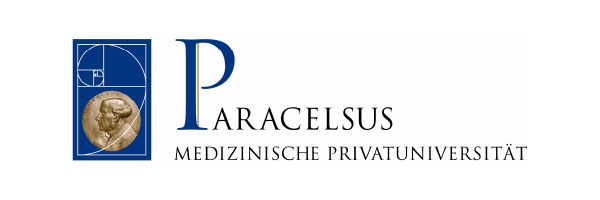
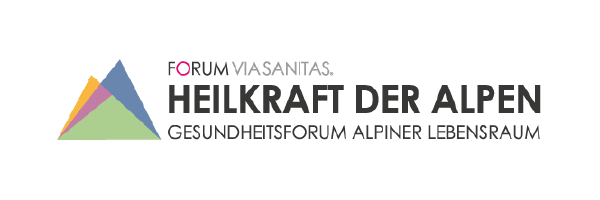

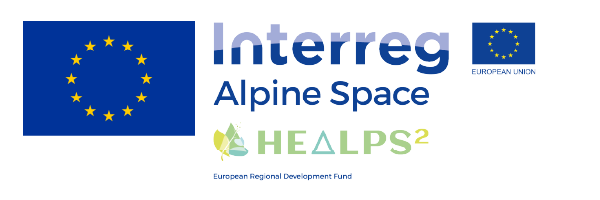
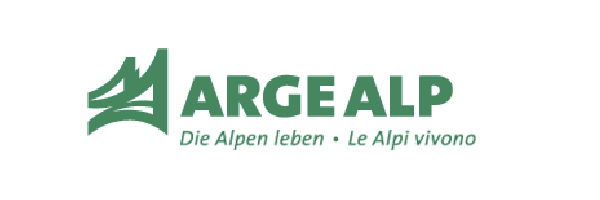
ALPARC is pleased to welcome a new Austrian member: Natur- und Geopark Steirische Eisenwurzen.
The Styrian Eisenwurzen Nature and Geopark is located in the middle of the triangle between Styria, Upper Austria and Lower Austria. Since 1996, the area of today's municipalities Altenmarkt, St.Gallen, Landl and Wildalpen have been given the title “Nature Park”. A nature park represents a characteristic and ecologically valuable mosaic from different cultural and natural landscapes. In the Styrian Eisenwurzen Nature Park these are, for example, flowing waters and their alluvial forests, habitats in the mountains (alpine pastures, rock and debris fields), meadows and pastures in the valleys, alpine mixed forest structures with a focus on beech and orchards. The nature park ensures healthy habitats for plants, animals and people. The goal isn’t “locking out” people, but the best possible integration of people into a cycle based on the pattern of nature, as can be illustrated very well using the example of orchards.
The Styrian Eisenwurzen Nature Park was named a European Geopark in 2002 and in 2004, we became a member of the “Global Geopark” network under the auspices of UNESCO. In 2015 it was recognized as a "UNESCO Global Geopark" as part of the UNESCO World Heritage. A geopark is an area with a special geological heritage and a strategy for sustainable regional development. A special geological heritage means that a geopark houses a certain number of geologically or archaeologically significant sites that are of particular importance due to their scientific quality, rarity, aesthetics or educational value. In addition, a geopark takes on an active economic role in the area by developing sustainable regional development strategies and expanding so-called geotourism as an educational component. What is important here is cooperation with the local population, who should be empowered to actively participate in the cultural revitalization of the region.
Thus, nature / geological protection, regional development, ecological education and nature tourism are among the general objectives of the Styrian Eisenwurzen Nature and Geopark.
By joining ALPARC's members, the Styrian Eisenwurzen Nature and Geopark has expressed the wish of working for a better alpine networking. With the UNESCO Global Geopark Network and the Netzwerk Naturwald (www.netzwerknaturwald.at) the park offers good prerequisites for getting involved. Its special position as a nature park and UNESCO Global Geopark can bring in all kinds of expertise to the network. The park is also aiming for better involvement in international projects. With its experience as Leader Partner for Interreg and H2020, the park would certainly also be appealed by future Interreg Alpine Space projects.
The Styrian Eisenwurzen Nature and Geopark is the third Austrian protected area to join ALPARC's members this year, which prooves -once again- the vitality of the network. The whole ALPARC's team addresses the park a warm welcome and is eager to work with its staff for a stronger alpine cooperation.
PHOTO: © Stefan Leitner – Gesäuse, mit Unterstützung von Bund, Land Steiermark und Europäischer Union (LEADER)
The International Bearded Vulture Monitoring network has recently released the report on the 15th International Observation Days that took place across the Alps and beyond, in October 2020. Once again, many Alpine Protected Areas took part in the event such as Nationalpark Hohe Tauern, Parco Nazionale Gran Paradiso, Parc National De La Vanoise, Parc National Du Mercantour, Parco Alpi Cozie, Parco Naturale Alpi Marittime - Waon, Parco Nazionale Dello Stelvio / Nationalpark Stilfserjoch and the Réserves Naturelles de Montagne de Haute-Savoie managed By Asters.
The International Observation Days (IOD) are an annual monitoring event for Bearded Vultures organised by the International Bearded Vulture Monitoring network (IBM). The monitoring action takes place in the first two weeks of October with a synchronous and coordinated survey on the focal day and covers large parts of the Alpine arc, parts of the Massif Central, the eastern part of the French Pyrenees, several regions in Spain, some selected sites in Bulgaria and the High Atlas.
The aim of this expanding network is to establish a Europe-wide monitoring of the Bearded Vulture population where time-synchronised observations on the focal day allow to make an approximate estimate of the population size and age class distribution. A monitoring action of this scale and the fact that birds are identified on an individual level whenever possible, is unique and generates baseline information for survival analyses and demographic modelling, which give valuable insight into the reintroduction progress. Furthermore, the number of participants during the IOD increases every year and thus the IOD represents a big public event that helps to increase awareness for the conservation of the Bearded Vulture as a flagship species.
IOD 2020 ACROSS THE ALPS:
Despite the unfavourable weather situation in most of the Alpine range on this year’s focal day (3.10.2020) more than 790 observers joined the IOD 2020 and reported 483 Bearded Vulture observations. In order to obtain a reliable Alpine population estimate, synchronous monitoring over a large part of the area is necessary to avoid double counting. However, due to limited access or poor visibility in many regions, the monitoring network could not be covered as in previous years. In addition, it must be assumed that fewer Bearded Vultures were observed flying at sites with bad weather, as a consequence of the unfavourable thermal conditions. Because of these limitations, no reliable estimate of the Alpine Bearded Vulture population or its age class distribution could be made in 2020. Nevertheless, in the Alps it was possible to identify 27 Bearded Vulture individuals with certainty, while a further 22 birds could be identified with slightly lower probability. These data provide important information on the life-history of these animals and can serve to calculate parameters for demographic modelling.
The full report of this 15th International Bearded Vulture Observation Day can be download here : http://www.gyp-monitoring.com/cms/resources/download.php?file=report_iod2020.pdf
IN THE GERMAN ALPS – Berchtesgaden National Park & LVB
More than 100 years after its extinction by humans in Germany, two young bearded vultures from Spanish offspring will be poached for the first time on 10 June as part of a project of the Bavarian nature conservation association LBV in the Berchtesgaden National Park. LBV and the only Alpine National Park in Germany are participating in an international project to resettle the bearded vulture in the Alps.
Full press release (in German) : http://alparc.org/images/News/News2021/BeardedVulture_Berchtesgaden2021.pdf
IN THE FRENCH ALPS – Vercors Regional Natural Park
In 2021 in France, 18 pairs of bearded vultures breed in the Alps and 48 in the Pyrenees. While some reproduction failures have been noted, vulture births have been observed at the same time since March.
In the Vercors Regional Natural Park, two birds, respectively from Bulgaria and the Czech Republic, joined the Tussac site in the town of Châtillon-en-Dois on May 23, 2021 where they were released into the cavity prepared for this purpose. A webcam has been installed to share the surveillance with the general public and perhaps capture the moment of the birds flight when they are ready: https://gypaete.parc-du-vercors.fr/gypaete.jpg?fbclid=IwAR0aDh8_n9FE-w9wW0aY0U41AZvy5-nH2hXcgR2A-C3tLc8Z1QuhQ4W0nOo
On World Environment Day on 5th June 2021, the Swiss Presidency of the Alpine Convention will launch the first edition of the Climate Hour in cooperation with the Permanent Secretariat of the Alpine Convention. For this event, partners from all Alpine countries organise local events on climate action in the Alps. All formats and ideas dedicated to a healthy Alpine climate are welcome. More information can be found here.
The Alpine Convention has recently announced the Publication of the Climate Action Plan 2.0 which supports progress towards the transformation of the Alps into a climate-neutral and climate-resilient region by 2050. The Climate Action Plan 2.0 has been developed by the Alpine Climate Board (ACB) and approved by the XVI Alpine Conference. It calls for joint activities across sectors and borders, aiming to close the implementation gap between strategies and actions to address climate change. The document operationalises the objectives laid out in the Alpine Climate Target System 2050 towards climate-neutral and climate-resilient Alps. It is based on implementation pathways, i.e. sequences of concrete measures designed in close cooperation with the Convention’s Thematic Working Bodies and further experts. Sixteen priority pathways have been indentified (see below). More information here.
Along the same lines, few days ago the Alpine Convention has announced the first edition of the Climate Hour that will be held on World Environment Day, on 5th June 2021. More information here.
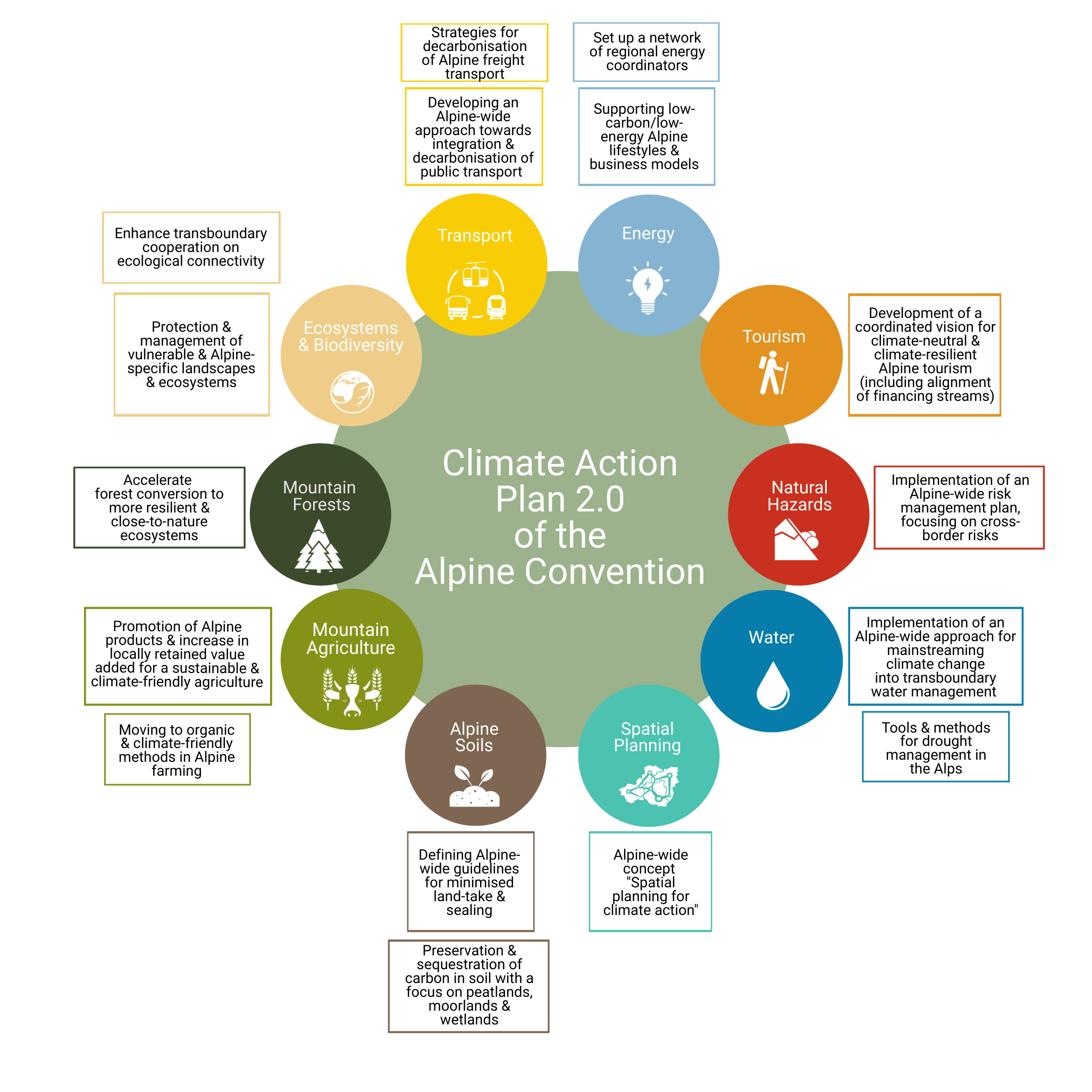
In 2021, ALPARC is fortunate to count 2 new Austrian members: The Nature Park Mürzer Oberland and The Nature Park Weissbach.
In the north-east of Styria, surrounded by the mountain peaks of Rax, Schneealpe and Veitsch, lies the Mürzer Oberland. Extensive forests, alpine pastures and also limestone mountains characterize this cultural landscape along the upper Mürz Valley. The River Mürz rises from two springs north of the Schneealpe, flows to the southeast and leaves the Mürzer Oberland Nature Park last near Mürzzuschlag. The park has the particularity to count diverse cultural landscapes. Historically dominated by the iron industry, mining and forestry, today the region is committed to sustainable tourism, with forestry still playing an important role. The park management focuses on various leading themes such as: forest, hunting and forestry, spring water protection, biodiversity and climate change, and other key topics alpine farming.
Naturpark Weißbach, again ALPARC member, has a new director: Sandra Uschnig. She presents shortly the park and her upcoming projects:
“Hello, my Name is Sandra Uschnig and I am the new CEO of the Naturpark Weißbach, in the federal state Salzburg in Austria. Founded in 2007 the Park is area is about 28 km2 and is characterized through different valuable biotopes, mountain streams and ravines as well as alpine pastures and rugged limestone rocks. The Naturpark is embedded in the Austrian Limestone Alps and provides a home for rare animals and plants (like the parnassius apollo, lilium martagon or Cypripedium calceolus).
This year will be dedicated to the evaluation and actualization of the established resources. We are planning to do some projects regarding young people like the Youth at the Top event of Alparc or the mountain forest project. Furthermore, we conduct environmental education through our summer programme consisting of different events and guided tours (like the golden eagle tour or the alp experience tour). Visit us on facebook ‘Naturpark Weißbach’ or Instagram ‘naturpark_weissbach’.”
We are pleased to warmly welcome these two protected areas as ALPARC members and we are looking forward to work together. Totalizing now 50 members representing 61 protected areas across the 8 Alpine Countries, ALPARC aims to foster synergy between Alpine Protected Areas.
Picture: Nature Park Mürzer Oberland - Wandern Falkensteinalm © nixxipixx.com-43
Euromontana recently published the OREKA MENDIAN Booklet of good practices, showcasing 31 inspiring examples for the sustainable management of mountain grasslands gathered across 18 European countries. These good practices are meant to inspire local actors to increase the biodiversity of mountain grasslands, tackled climate change impacts and better market their products, among many others. Good practices were selected through desk/web research and a survey done at EU level in December 2018.
OREKA MENDIAN is a seven-year project (2016-2022) funded by the European Union’s LIFE Programme. It aims to develop a preservation strategy for mountain pasturelands in the Basque country (covering both the French and Spanish regions), seeking to create a sustainable balance between the environmental preservation and socio-economic uses of these grasslands. In the project framework, Euromontana conducted a study of the current status of mountain grasslands throughout Europe, in order to have a precise picture of these grasslands in 2020.

2021 is a transition year between the current Interreg Alpine Space programme and the future Interreg Alpine Space programme 2021-2027. Therefore, it is now time to bring together all interested stakeholders to further discuss the challenges of the area and to find ways to tackle them through cooperation. To this end, three thematic sessions and virtual meetings "Connect @lpine space 2021+" are scheduled from May 5th to May 12th.
Each of the 2-hour Connect @lpine Space 2021+ sessions will cover a topic of the future programme and can be attended independently:
Each event consists of a keynote speech by renowned experts, a panel discussion including Q&A opportunities and subsequent networking sessions. The networking sessions will be organised according to different topics of interest, which you can select in the registration form.
Registration
The registration is now open and closes respectively on 30 April [Resilience to climate change], on 3 May [Circular economy] and on 5 May [Social innovation]. Click here to proceed to the registration form. Please note that the number of participants is limited.

2021 is a transition year between the current Interreg Alpine Space programme and the future Interreg Alpine Space programme 2021-2027. Therefore, it is now time to bring together all interested stakeholders to further discuss the challenges of the area and to find ways to tackle them through cooperation. To this end, three thematic sessions and virtual meetings "Connect @lpine space 2021+" are scheduled from May 5th to May 12th.
Each of the 2-hour Connect @lpine Space 2021+ sessions will cover a topic of the future programme and can be attended independently:
Each event consists of a keynote speech by renowned experts, a panel discussion including Q&A opportunities and subsequent networking sessions. The networking sessions will be organised according to different topics of interest, which you can select in the registration form.
Registration
The registration is now open and closes respectively on 30 April [Resilience to climate change], on 3 May [Circular economy] and on 5 May [Social innovation]. Click here to proceed to the registration form. Please note that the number of participants is limited.

2021 is a transition year between the current Interreg Alpine Space programme and the future Interreg Alpine Space programme 2021-2027. Therefore, it is now time to bring together all interested stakeholders to further discuss the challenges of the area and to find ways to tackle them through cooperation. To this end, three thematic sessions and virtual meetings "Connect @lpine space 2021+" are scheduled from May 5th to May 12th.
Each of the 2-hour Connect @lpine Space 2021+ sessions will cover a topic of the future programme and can be attended independently:
Each event consists of a keynote speech by renowned experts, a panel discussion including Q&A opportunities and subsequent networking sessions. The networking sessions will be organised according to different topics of interest, which you can select in the registration form.
Registration
The registration is now open and closes respectively on 30 April [Resilience to climate change], on 3 May [Circular economy] and on 5 May [Social innovation]. Click here to proceed to the registration form. Please note that the number of participants is limited.